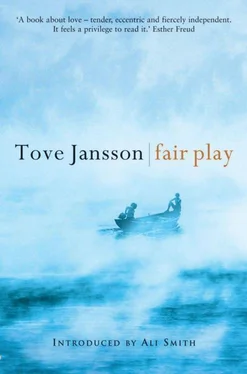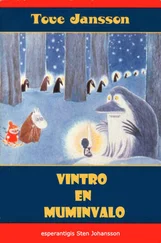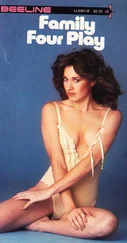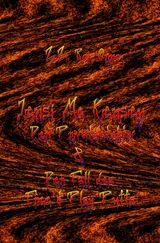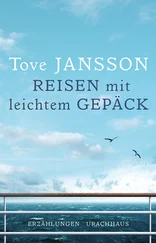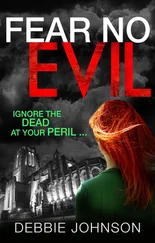Mari stood close beside Jonna with an opened Kodak film in her hand. She was waiting for the camera’s steady whirring to change speed, at which point she had to have a new roll ready instantly. Another important job was keeping Jonna’s field of view open. Mari saw it as a point of honour to keep people from walking in front of the camera.
“Don’t worry about them,” Jonna said. “They’re just extras. I’ll clip them out.”
But Mari said, “Let me. It’s my job.”
Equally important was finding Kodak film. And Mari searched. In the cities, the towns, at bus stops, she kept an eye out for the gold-and-red sign showing that here you could buy Kodak. Agfa seemed to be everywhere.
“It comes out blue-green,” Mari said. “Wait. I’ll find Kodak.” And she’d search on, all the while afraid that they’d encounter something fantastic — one of those never-to-be-repeated street events that would play out before their eyes just as the film ran out — and then have to wander on trying to forget what they’d lost.
They travelled from city to city, Jonna, Mari and Konica. Mari grew critical. She began giving instructions and advice and involved herself in questions of composition and lighting and bustled about looking for suitable subjects.
They arrived at the Great Aquarium, at the dolphins’ turquoise tank, and Mari grabbed Jonna by the arm and yelled, “Wait, I’ll tell you when it’s going to jump. You’re wasting film…” And the dolphin corkscrewed high out of the water, sparkling in the sun, and Jonna burst out, “Now I missed it! Let me decide for myself!”
“By all means!” Mari said. “You and your Konica.”
It was inconceivably beautiful and mysterious down in the dark passages where the tank was lit underground. The whales were diving. Through the glass walls you could see the power of their dance as they plunged downward and turned and shot up into the light again. “It’s too dark,” Mari said. “You won’t get anything; the film will just be black…”
“Quiet!” Jonna said. “The shark’s coming.”
People pushed forward to see the monster, and Mari threw her arms wide to stop them. The shark came; a slow, grey shadow swept past close to the glass and vanished.
“Good,” said Jonna. “I got it. You’ve always wanted to see a real shark up close. Now you have.”
Mari said, “I didn’t see it.”
“What do you mean, didn’t see it?”
“I was only thinking of the Konica! I’m always thinking about the Konica and not about what I see! It just goes by.”
“But don’t be angry.” Jonna held out her camera in both hands. “Your shark is here, it’s in here! When we get home you can see it as many times as you want, whenever you want. And with music.”
Nothing made Jonna happier than finding a circus, or maybe even better a Sunday carnival somewhere on a city’s outskirts. They searched one out with the Konica, heard at a distance the breathless staccato of the carousel. Jonna started her tape recorder. “We’ll start here,” she whispered. “We’ll get closer and closer, quite slowly — anticipation. And our footsteps. Then the visual.”
They never rode the carousel.
And later, a long time later, in her studio, Jonna set up the screen, focused the projector, and turned off the ceiling light. Mari sat waiting with pen and paper. The machine began to whir and threw a rectangle of light across the screen.
“Makes notes where I should cut,” Jonna said. “And the repeats.”
“Yes, yes, I know. And when it goes black.”
Their trip came toward them. Mari made notes:
head gone to r.
jumping
fence on l.
too long beach
unnec. landsc.
people gone too fast
flower blurred
She wrote and wrote, and afterwards she didn’t really know where they had been.
“The clipping is even harder than the filming,” Jonna explained. “When I’ve cut it, we can add music, but not yet. Music makes you uncritical.”
“Jonna, right now I want to see something with music. And without taking notes.”
“What do you want to see?”
“Mexico. The empty carnival. You know, all the people who were too poor to ride the carousel.”
Jonna put in the cassette, an endless, mournful marimba. The picture was blurry and shaky at first but gathered itself suddenly into a long, evening landscape — the empty field outside Mazatlán. There was the drainage ditch running out toward the ocean, reflecting a last glimpse of the sunset in a long band of burning gold that quickly died. Then the barracks, the car dump, and now, far off, the Ferris wheel with its many-coloured lights that rose and sank and rose and sank.
The Konica came closer and you could see that all the little pleasure boats were empty. The picture moved over to a carousel that was also revolving and just as empty. Everything was sparkling and tempting and ready for fun, but the people strolling slowly through the carnival took no part in the amusements; they just observed. Except for some boys shooting at targets, whose stern faces Jonna had caught in a close-up.
As the film went on, dusk sank deeper over Mazatlán, the people left, but the Ferris wheel kept on turning, now just a circle of rising and falling lights. It was almost night. The marimba played on. The back of the circus tent, indistinct, some dogs rooting around in a rubbish tip.
“Terrible,” Mari said. “Terribly good. All those people who just had to go home without… But at least they saw it, didn’t they? Didn’t you get the ditch at the end, too? That sparkled?”
“Wait, it’s coming.”
The picture went black and stayed black for a long time. Several weak flashes of light, nothing more, and the screen was empty.
Mari said, “You have to cut that; no one will get it. It was too dark.”
Jonna turned off the projector and turned on the overhead light. She said, “Right there it has to be absolutely black, graphically black. But you were there now, weren’t you?”
“Yes,” Mari answered. “I was there.”
JONNA CAME IN WITH A BOTTLE OF BOURBON, a carafe of water, and a packet of Cortez cigarillos.
“Aha,” said Mari, “the Wild West. A B-Western?”
“Yes. An early classic.”
The room was cold, and Mari wrapped herself in a blanket. “What time?”
“Actually,” Jonna said. “Actually, it would probably be better if I watched it alone.”
“I promise not to say a word.”
“Yes, but I’ll know what you’re thinking, and I can’t concentrate.” Jonna poured them both a drink. “You think Westerns repeat the same theme over and over. That may be. But you have to understand that Americans are in love with their history, which was so short and powerful, and they describe and depict it again and again… Are you in love with the Renaissance? What do you care about the ancient Egyptians? The Chinese?”
“Not much,” Mari said. “They’re just there. Or were.”
“Fine. Now don’t assume that I’m defending B-Westerns, but think about it, try to imagine what it was like in the early days. Courage! Courage and patience. And pure curiosity. Imagine being among the very first to discover and conquer a new country, a new continent!”
“Conquer,” Mari repeated and pulled the blanket tighter.
“Yes, yes. Now don’t go on about the Indians and all that stuff about cruelty and arrogance; those things happen on both sides. Great change always involves great intensity. That’s just the way it is, right? Look at their desolate little towns in a completely empty landscape, and remember they lived in constant danger… They had to develop a strict, an implacable, sense of justice, they had to try to invent the Law for themselves, as best they could…” Jonna put down her cigarillo. “It doesn’t draw,” she said. “It’s the wrong kind.”
Читать дальше
